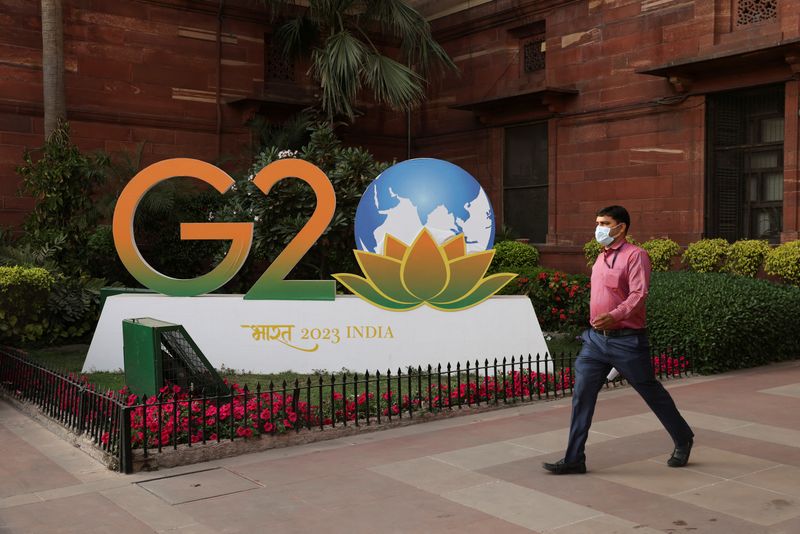Strategy pauses Bitcoin buying, builds cash reserves
By Sarita Chaganti Singh
NEW DELHI (Reuters) - India, backed by China, is trying to build a consensus within the G20 group to let countries choose a roadmap to cut carbon emissions instead of setting a deadline to end the use of fossil fuels, three Indian government officials said.
India, the current G20 president, is keen on introducing the phrase 'multiple energy pathways' in a communique to be released at a group summit in September and has been supported by countries including China and South Africa, one of the officials said. The three officials declined to be identified since they were not authorised to speak to media.
Multiple pathways for energy transition would enable countries to choose resources, even coal, while working towards plans on net zero emissions.
At a meeting of the G20 Energy Transitions Working Group (ETWG) in the western state of Gujarat last month, India opposed a deadline proposed by rich nations to end the use of coal, said the official who was at the meeting. Coal accounts for nearly three-fourths of India's annual electricity generation, according to government data, and New Delhi has long defended its use of the fuel, citing lower emissions per capita, compared to other countries.
China supported India during the meeting, saying it cannot put a timeline on ending fossil fuel dependence and would want to put 'all' its available resources to optimum use, the official said.
The two countries are the top two consumers of coal in the world.
China's foreign affairs and environment ministries did not respond to queries sent by Reuters.
The Indian power ministry declined comment. The ministries of environment and renewable energy did not respond.
Climate ministers from the Group of Seven wealthy nations agreed last month "to accelerate the phase-out of unabated fossil fuels so as to achieve net zero in energy systems by 2050 at the latest".
Officials said it was the first time India used the phrase 'multiple pathways' in global climate negotiations against repeated demands by Western nations to end coal usage.
A second official said the phrase is in conformity with the 2015 Paris Agreement on combating climate change that favours "common but differentiated responsibilities, under different national circumstances". He said rich countries overlook this while asking for the exit from coal.
"A dominant view was seen emerging on every country to have individual pathways to achieve their national commitments and endowments," a third official who attended the meeting said.
Faced with calls to phase down the use of coal at the last climate change deliberations in Egypt in November 2022, India said all fossil fuels should be phased out including natural gas. At the G20 meeting last month, India kept the focus on fossil fuels, rather than singling out coal, the third official said.
India and China, the world's two most populous countries, have often taken common positions at international climate change negotiations, despite long-standing border disputes.
In March, the European Union agreed to promote a global fossil fuel phase out ahead of the COP28 summit in Dubai in November.
Delhi will host a summit of G20 leaders, including U.S. President Joe Biden and Chinese President Xi Jinping, in September. Officials are meeting in the run-up to that meeting to finalise the group's position on global issues including climate change.
The G20 includes the G7 countries as well as Russia, China, India, Brazil, Australia and Saudi Arabia, among other nations.
